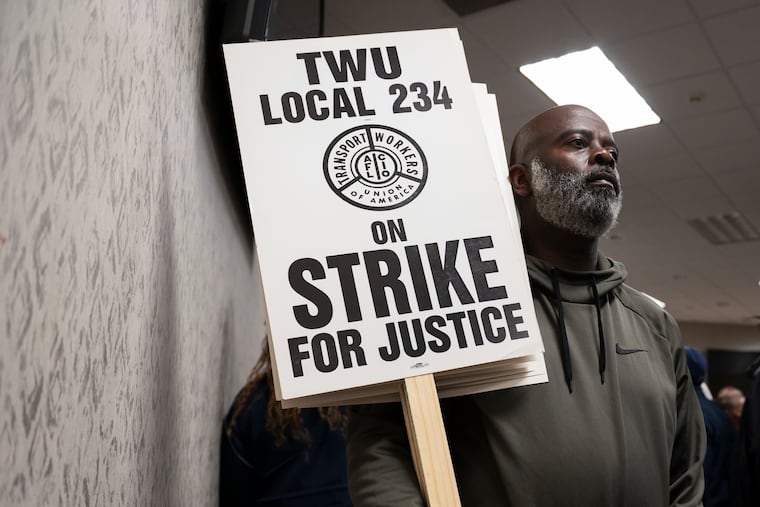Transport Workers Union ratified a new contract with SEPTA
Contract negotiations took place as SEPTA was in a fiscal crisis.

Transport Workers Union Local 234, SEPTA’s largest bargaining unit, and two smaller locals representing bus, trolley, and train operators and mechanics in the suburbs ratified a one-year tentative contract agreement Friday with the regional transit agency
TWU members will get a 5% across-the-board wage increase, as well as a 5% monthly boost in pension benefits for members who retire during the next year. The two suburban locals approved agreements with similar terms.
“The contract we just ratified will put more money in our members’ pockets and will improve safety and security for workers and passengers,” said TWU Local 234 President Brian Pollitt, who began his career as a bus operator.
SEPTA also agreed to improve personal safety for employees, amid attacks on frontline transit workers, including bulletproof enclosures on buses to protect operators, upgrades to radios, and fixes to allow uninterrupted communication in subway and trolley tunnels.
“I want to emphasize that we only reached a one-year agreement. In 2025 we will be back at the bargaining table and in the new year we also will be seeking greater support from Harrisburg for public transportation,” Pollitt said in a statement.
SEPTA’s board is schedule to vote on the contracts later this month.
TWU and SEPTA had been bargaining almost daily since Nov. 8 after the current contract expired and union leaders postponed a strike, agreeing to keep meeting with management as long as there was progress. Local 234 members authorized a strike and have been working without a contract.
“I was pretty close” to calling a strike, Pollitt said after the tentative deal was reached on Nov. 20, calling the negotiations “tedious.” Scott Sauer, who is now SEPTA’s interim general manager, noted at the time that the transit agency’s “unprecedented” fiscal crisis made talks especially difficult.
SEPTA initially offered no wage increase and at one point proposed that TWU members pay more for their health-care coverage. Pollitt said both were unacceptable to the union, though it did agree early on to aim for a one-year deal, given the circumstances.
With roughly 5,000 members, Local 234 represents bus, subway, and trolley operators, mechanics, cashiers, maintenance people, and custodians — those who keep the buses, trolleys, and subways moving in the city. A strike would have shut down public transit within Philadelphia city limits.
TWU’s City Transportation Division employees approved the contract 1,172 to 365, the union said. The union representing Delaware County bus and trolley operators, plus light-rail operators on the Norristown High Speed Line, voted 93 to 15 to approve the news contract. Members of locals in other suburban divisions approved 69 to 11.
TWU Local 234 and SEPTA reached a tentative agreement Nov. 20, and the other locals agreed to terms shortly thereafter.
The agency has a $153 million operating deficit, whittled down from $240 million before a $46 million one-time payment from the state, and the use of reserve funds to plug the gap. The crisis developed as SEPTA’s share of federal pandemic relief for the nation’s transit systems ran out earlier this year amid sharp increases in costs.
Gov. Josh Shapiro, a Democrat, on Nov. 22 announced he was ordering the flexing of $153 million of federal funds for state interstate construction projects to SEPTA, a legal maneuver that has rarely been used to such an extent in Pennsylvania.